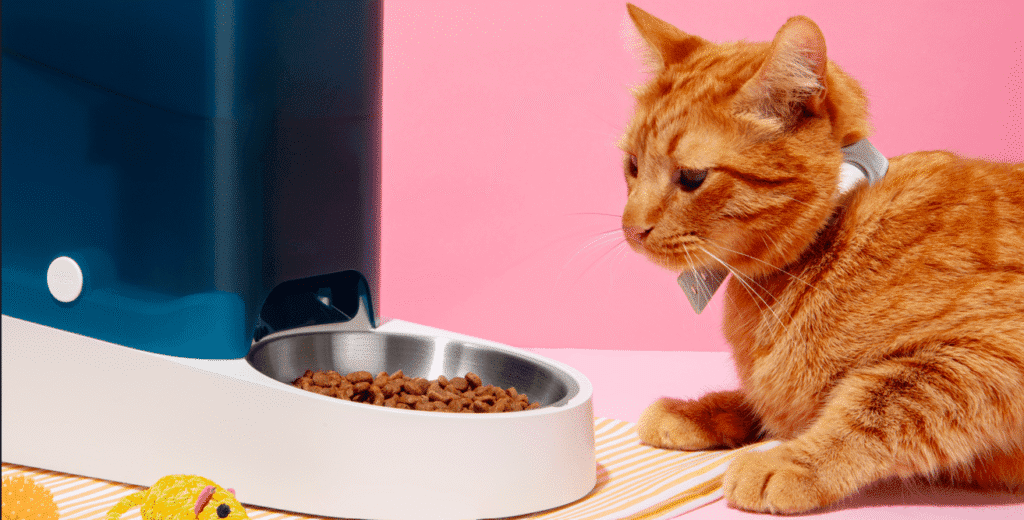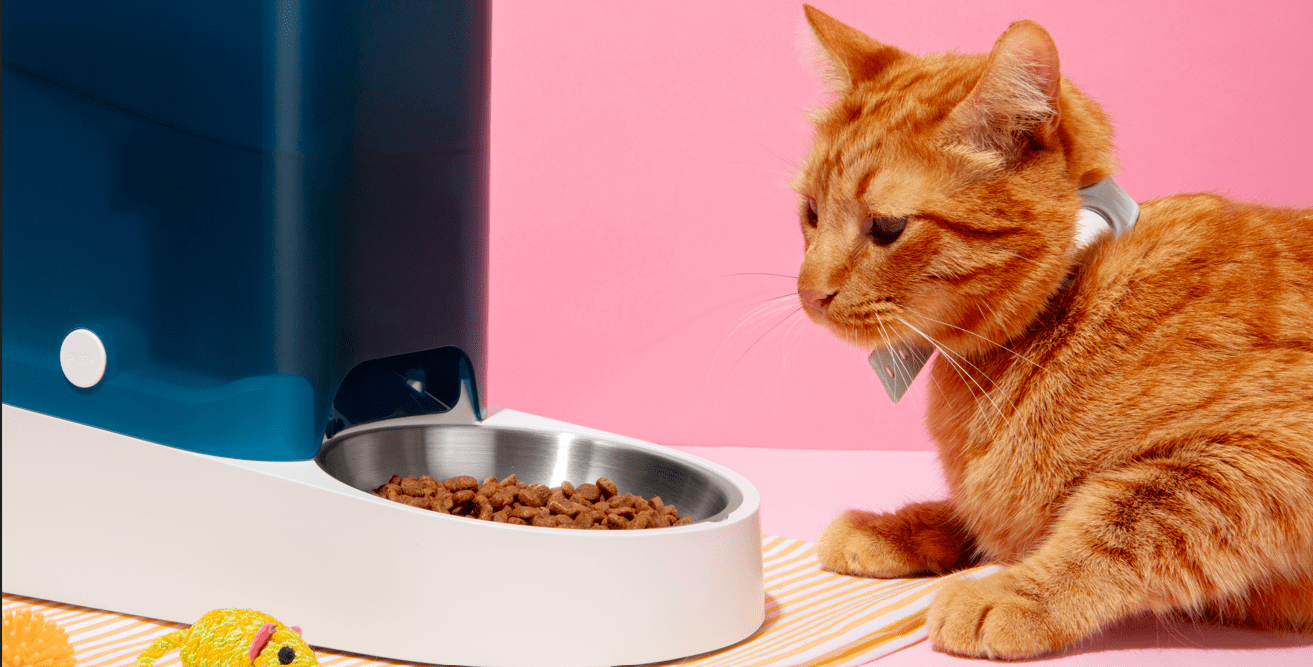Table of Contents
Why My Cat is Not Eating?
A cat is not eating or shows a loss of appetite over a day or two signals a behavior change that can be very worrying. Because cats have an instinct to hide signs of illness, pain, or weakness, it’s often challenging to tell when your kitty is not feeling well especially in the early stages.
This poor appetite could have many causes, so seeking veterinary care quickly is one of the most important things you can do. The veterinarian will perform a physical exam and order diagnostic tests like blood work, X-rays, ultrasound, or other imaging to find the cause.
Since cats need adequate nutrition every day, not eating can become a medical emergency with serious consequences. In our modern lifestyle, where family pets rely on us, early attention helps keep your cat comfortable and improves recovery chances.
About a Cat Who’s Not Drinking Water?
If your kitty seems to drink less water than usual despite having a normal food intake, it’s often linked to subtle changes in their routine or diet. Many cats prefer moving water over sitting water, so a water fountain with the gentle noise of running water can encourage them to drink more.
A possible cause for decreased water intake is a food change switching to canned food with higher moisture content often means your cat’s diet already has more liquid, so they may naturally drink less water from the bowl.At mealtimes, offering more water or a fountain can help, but if your pet is not eating or drinking more water than usual, or showing signs like eating less than usual, it could be a symptom of a health problem such as diabetes or kidney disease.
From my experience, staying calm and observing your pet’s behavior closely while scheduling a veterinary appointment if you’re concerned is the best course of action. Don’t hesitate to talk to your vet about what’s happening early detection can make a big difference
8 Reasons Why Your Cat is Not Eating
1- Cat Sick and Illness
When a cat suddenly stops eating, it often points to health conditions that need close attention. Many cats suffer from upper respiratory infections or other nasal diseases like nasal polyps or tumors affecting the nose, causing a stuffy nose and reducing their sense of smell.
Since cats rely on smell to enjoy the flavor and texture of their food, this can lead to loss of appetite and a reluctance to eat.Offering wet foods such as canned food, sometimes with gentle heating to bring out strong aromas, can make meals more tastier and encourage eating. Treating viral or bacterial infections with proper medication or antibiotics helps the cat feel better.
However, more serious issues like kidney failure, pancreatitis, intestinal problems, cancer, or a painful toothache are all key clues that something is wrong and require immediate care. Always pay attention because when a cat decides to stop eating, it can worsen rapidly if ignored.
2- Intestinal parasites
When a cat suddenly stops eating and drinking, one possible cause could be intestinal parasites like worms. These parasites can lead to uncomfortable symptoms such as weight loss, diarrhea, and bloating. If left untreated, they may also cause vomiting and, in severe cases, trouble breathing. It’s important to watch for these signs, as they can seriously affect your cat’s health. Regular vet visits can help detect and treat intestinal parasites before they lead to further complications.
3- Dental Problems
If you notice your cat may stop eating, one of the main reasons could be problems in the mouth caused by dental disease. From my experience, inflammation such as gingivitis happens when tartar builds up on the cat’s teeth, hurting the soft tissues and making eating painful.
Sometimes, more serious conditions like cancerous tumors can develop, causing bad breath, drooling, or even bleeding. These are clear clues that your pet needs help. To prevent many of these diseases altogether, it’s important to watch your cat regularly and keep up with brushing using a cat toothbrush and special toothpaste.
4- Recent vaccination
If your cat suddenly won’t eat or drink after their routine vaccinations, it could be due to a temporary side effect from the shots. While vaccines are essential lifesavers for animals, they can sometimes cause a mild loss of appetite as a bad reaction to the shots. This is usually nothing to worry about, but if the issue persists, consult your vet to rule out any other possible reason.
5- Gastrointestinal Issues
If your cat suddenly shows a lack of appetite, it might be facing GI problems involving the gastrointestinal tract. From personal experience, I’ve seen cats suffering from conditions like food allergies or infections leading to symptoms such as vomiting, diarrhea, and noticeable weight loss. In more severe cases, issues like inflammatory bowel disease, pancreatitis, or even cancer can occur. Sometimes, an obstruction caused by foreign body ingestion might also cause constipation, nausea, or decreased appetite.
6- Congestive Heart Failure
When a cat shows difficulty breathing, fatigue, and coughing, it may signal congestive heart failure, a serious heart disease that can affect the cat’s health deeply. Such conditions often make the cat less interested in eating because the illness changes how they feel. From my experience, cats used to a specific flavor, texture, or profile of food may reject it when their appetite declines. To help, vets often prescribe new medications and suggest offering different food types to encourage the cat to eat despite these challenges.
7- Stress, Anxiety, or Depression
When cats stop eating or drinking, it’s often linked to behavioral causes rooted in emotional causes like stress, anxiety, or depression. A common trigger is a change at home—for example, if the owner is out of town or the cat is in boarding. Even insignificant changes such as construction, rearranging resources like food, water, or litter boxes, or adding a family member can disrupt a cat’s sense of security.
Whether these changes happen inside home or outside home, the introduction of new smells, odors, or social conflict with other animals in the household can affect their mood. From personal experience, I’ve seen cats become withdrawn after losing a family member or when their home environment shifts, which can lead to a sudden loss of appetite driven by complex emotions.
8-Environmental Impact on Eating Behavior
Environmental changes can impact a cat’s eating habits. For instance, if multiple animals or multiple cats are sharing the same feeding areas, this may cause stress and intimidation. Cats like Juno can experience gut problems or an upset stomach due to this stress. A change in their food, especially when switching to something unfamiliar, may lead them to avoid eating for longer periods.
It’s important to slowly introduce the transition plan, mixing the new food with their current food and keeping an eye on their mealtime behavior. To reduce stress, try separating the animals or offering a separate bowl for each pet. If the problem persists, advise a Vet or the care team to handle the situation better.
What To Do When Your Cat is not Eating?

If your cat is refusing to eat, it’s important to monitor them closely, especially if this has been going on for several days. Loss of appetite can mean something is amiss with your kitty’s health. It could be a sign of a medical condition such as anorexia or even fatty liver disease, where the liver gets overwhelmed with stored fat.
In senior cats or those who are overweight, this is a high-risk situation that could lead to liver failure if not addressed quickly. Dehydration and electrolyte imbalances are common when kitties stop eating, and they can cause delayed healing and weight loss. If your kitty is acting out of the ordinary and refusing to eat, it’s a good idea to check their eating habits.
Sometimes, they can become picky due to new food or a sudden change in diet, like switching from canned cat food to dry food. If that’s the case, try offering canned tuna or adding fish oil to their meals to make them more appealing. However, avoid human foods as they can cause nutrient deficiencies. To help improve their appetite, try using techniques like a healthy eating schedule or setting up an appointment with your vet.
Treatment for Cat if your cat is not eating
When your kitty is refusing to eat or drink, it can indicate a serious issue like anorexia, which causes a loss of appetite. This might be due to an underlying chronic illness, a respiratory infection, or even a dental problem. It’s important to take action quickly. Begin by having your cat examined by a veterinarian for a complete physical.
The vet will review your cat’s history, look for any changes in behavior, and check if anything, like medication, was discontinued. Based on this, the vet can pinpoint the cause and begin treating the issue with supportive care, helping your cat stay hydrated and nourished. In many cases, once the underlying issue is addressed, your cat’s appetite can return, improving their overall health.
To make a diagnosis, diagnostic tests are often required as they provide your veterinarian with valuable insights into what is happening inside your pet’s body. Some of the most common tests are:
- A fecal test to look for parasites
- Bloodwork and a urinalysis
- X-rays or ultrasound
- Tests for infectious diseases
After identifying the exact problem, a focused treatment plan is put in place. For instance, if a cat has a painful tooth, a dental surgery will be arranged to address it, while a kitten feeling anxious due to changes at home might receive calming supplements to ease stress.
No matter the reason, providing supportive care is crucial to help the unwell cat recover, avoid issues caused by not eating, and encourage the healing process naturally.
FAQs
1. What you can do if your cat is not eating?
If your cat is not eating, first try to observe if it’s due to stress, a change in food, or a medical issue. If the loss of appetite continues for more than a day, consult a vet to rule out any health problems. Early attention can help prevent any serious issues.
2. How long can a cat go without eating?
A cat can usually go without food for 2-3 days, but it depends on the cat’s health. If they stop eating for more than 24 hours, it’s important to seek veterinary care to avoid complications like liver disease. Not eating for too long can lead to weakness and other health risks.
3. What can you do to encourage a sick cat to eat?
If your cat is sick and refusing food, try offering warm, aromatic food or wet food. You can also try hand-feeding or using a syringe (under vet guidance) if necessary. Be sure to reach out to your vet if the issue continues. They may recommend specific treatments to help stimulate your cat’s appetite.
4. How to convince a cat to eat?
To encourage your cat to eat, offer a variety of different foods, such as wet food or treats. Try warming the food slightly or adding a bit of tuna juice to make it more enticing. Patience and a calm environment can also help. Sometimes, gently comforting your cat while they eat can make a difference.
5. How often should you feed your cat each day?
Adult cats should generally be fed two meals a day, while kittens may need 3-4 smaller meals. Always follow your vet’s advice regarding portion sizes and feeding schedule based on your cat’s specific needs. Regular feeding helps maintain their energy levels and overall health.
